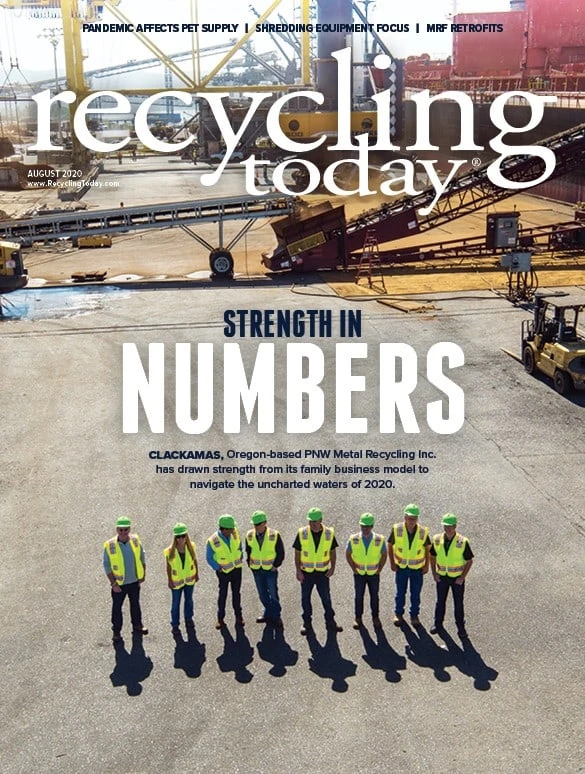
Closed Loop Partners receives $54M investment
New York-based Closed Loop Partners has announced that several large consumer brands and corporate foundations are extending more than $54 million in capital commitments with the Closed Loop Infrastructure Fund (CLIF). According to a news release from Closed Loop Partners, the original nine investors in the fund are extending their capital commitments, strengthening their investments in the infrastructure needed to build a more circular economy.
The original nine investors include 3M, Coca-Cola, Colgate Palmolive, Johnson & Johnson Consumer Health, Keurig Dr Pepper, PepsiCo, Procter & Gamble, Unilever and The Walmart Foundation. Closed Loop Partners says Amazon, Danone North America, Danone Waters of America, Nestlé Waters North America and Starbucks have since joined the fund. These investments support additional recycling infrastructure and spur growth around North American end markets for postconsumer materials.
The initial investment from these brands has leveraged more than $200 million in co-investment, supporting development in domestic recycling infrastructure, local jobs and new markets in cities across the U.S., Closed Loop Partners says. The investments have helped Eureka Recycling in Minneapolis, which is a nonprofit social enterprise that recovers about 100,000 tons of mostly residential recyclables per year, as well as Emerald Coast Utilities Authority in Florida and TemperPack in Virginia, a manufacturer of plant-and fiber-based insulated packaging solutions that can be recycled in curbside programs.
The organization says 37 of the world’s largest consumer brands and retailers—including some that have invested in Closed Loop Partners—have made public commitments to use recycled plastics in their packaging within the next 10 years. Current projections indicate 5 million to 7.5 million metric tons of recycled content demand by 2030, requiring supply to increase by 200 to 300 percent.

Explore the August 2020 Issue
Check out more from this issue and find your next story to read.
Latest from Recycling Today
- BMW Group, Encory launch 'direct recycling’ of batteries
- Loom Carbon, RTI International partner to scale textile recycling technology
- Goodwill Industries of West Michigan, American Glass Mosaics partner to divert glass from landfill
- CARI forms federal advocacy partnership
- Monthly packaging papers shipments down in November
- STEEL Act aims to enhance trade enforcement to prevent dumping of steel in the US
- San Francisco schools introduce compostable lunch trays
- Aduro graduates from Shell GameChanger program





